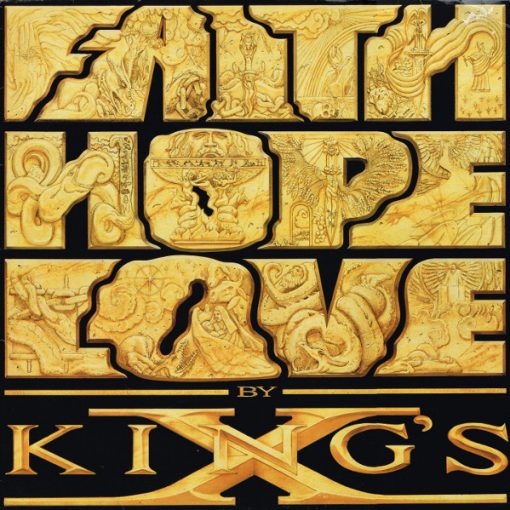Proper 23 (28) (October 14, 2018)
- First reading and Psalm
- Job 23:1-9, 16-17
- Psalm 22:1-15
- Second reading
- Hebrews 4:12-16
- Gospel
- Mark 10:17-31
“Good Teacher, what must I do to inherit eternal life?”
I love comedy. Not sit-coms like Friends or Brooklyn 99, I enjoy those very much, but what I really love are stand-up comics, the British panel quiz shows, and topical humor like NPR’s Wait, Wait, Don’t Tell Me. The latter is celebrating their 20th anniversary by doing interviews with the panelists they have had over the years. If you are not familiar with the weekend show, it is a news quiz show with a panel of three comedians, contestants who phone in, and a special guest who is currently in the news, usually an actor or a politician. Adam Felber was one of their earliest guests and he also writes for Real Time with Bill Maher, a news talk show that is very political and caustic even as it is humorous. That is, assuming you share the writers’ and the hosts views.
In the interview with Adam Felber, he cites this key difference between Wait Wait and other comedy news shows like Real Time and The Daily Show: Wait Wait “is not a ‘the world is ending kind of show.’” All the other shows, he suggests, are “a little bit, ‘enjoy this because we are all going to be dead by Thursday.’” That isn’t too surprising because no matter where you are on the political spectrum, the constant news we hear is that our world is coming a part at the seams. This is the end! Our culture is eroding, we have lost our moral compass, the US has lost its gravitas and political standing in the world, and on and on and on. (All of which have been said by people on all points of the social-political spectrum.) REM were not the first to say, “It’s the end of the world as we know it.”
If there is one constant that we can find throughout history, it is that someone believed that the world was coming to an end. Perhaps not in a literal fire-ball of nuclear destruction, such as the fears I grew up with in the Cold War era, but always, if you listen for it and pay attention, there is the voice inside our head (if not outside) that says, “this world is not getting any better.”
This is why so much of the Bible is relatable to all people everywhere. We are all keenly aware that life is full of injustice and suffering. It often feels that our communities are on the edge of collapse and, especially in this age of instant global information, that the world itself is about to self-destruct. We watch in sadness the suffering of people devastated by floods and hurricanes. We weep to read of child abuse and exploitation that is just down the road and across the globe. Anxiety grows within us as we hear politician after politician tell us that the other side is leading us to perdition.
But it is nothing new and that should not discourage, but encourage us. There is “nothing new under the sun” and that is why the Bible, and today’s readings in particular, remain so relevant to us.

Consider Job. His world is crumbling. He has lost his children, his property, and his health, yet he has not lost his force of will, the drive to demand an answer from God. “Today also my complaint is bitter; his hand is heavy despite my groaning. Oh, that I knew where I might find him, that I might come even to his dwelling!” (Job 23:2-3)
All of us have suffered loss in our time. If we are fortunate, it might only be a friendship or a job. I would expect, however, that among us there are those who have experienced deep loss, the death of loved ones, illness, and feelings of separation and isolation. This was Job’s plight, even amongst his friends and wife, he felt abandoned by all, including God. “Oh, that I knew where I might find him!”
You know the story, at least in broad strokes. God does, eventually, respond to Job’s demands for a hearing. And his answer, in four short words, is “You are not God.” It seems hardly satisfying to us: God does not answer Job’s questions, his insistence to know “why,” why it is that his family and he has suffered so much. Yet…when we focus on what God says in reply to Job we can miss the most important thing that is occurring, God is speaking to Job!
True, the answers God offers are not the ones that Job or we would want, but it is the reminder that we need. While this world is one that is broken, full of hurt, God remains with us. This passage we read today is in response to Eliphaz challenging Job to just admit his guilt and move on, to recognize that God is in Heaven, remote and uncaring “Can a mortal be of use to God? Can even the wisest be of service to him?” (Job 22:2) Yet, says Eliphaz, we must simply follow the rules and God will mechanically respond. “Agree with God, and be at peace, in this way good will come to you” (Job 22:21).
Job and our Psalmist stand agains that view, a view that remains popular, even today. Job insists that God may be far and removed in the heavens, but he can also come and account for the reality of this world where the wicked flourish and the faithful suffer. The Psalm begins with the very words Jesus himself spoke on the cross, “My God, my God, why have you forsaken me? Why are you so far from helping me, from the words of my groaning?”
If you remember nothing else from this sermon remember this: We are not only allowed to complain to God, it is perhaps the most faithful act of all. The majority of the Psalms are psalms of lament, examples for us to use in crying out to God, demanding his response to this suffering and injustice we see in this world.
God’s ultimate response to these prayers is Jesus himself. His coming to earth and suffering with us. He is “one who in every respect has been tested as we are.”
When the man comes to Jesus, he asks him “what must I do to inherit eternal life.” His circumstances seem the opposite of Job’s, he apparently has all the worldly possessions that one might want, and yet his complaint is much the same as Job’s. “Oh, that I knew where I might find God, that I might come even to his dwelling!” He desires to know how to live, how to receive God’s full blessing.
Like Job, the man insists that he has kept all the commandments, that he has done no wrong and yet he realizes as well that his life is incomplete. This unnamed man knows that something is missing and he asks Jesus to tell him what it is.
Many sermons today will focus upon this element of Jesus’ reply: “You lack one thing; go, sell what you own, and give the money to the poor, and you will have treasure in heaven.” Indeed, this passage has served as the basis for many a Stewardship Sunday. Your money not only will not bring you happiness, it will hinder your entrance to heaven. (Therefore give it to the church.)
Yet that is not the “one thing” that Jesus is telling the man to do.
Jesus, looking at him, loved him and said, “You lack one thing; go, sell what you own, and give the money to the poor, and you will have treasure in heaven; then come, follow me.”
Jesus looked at that man and knew him, knew what was holding him back from following Jesus. It was his possessions that were keeping him from the one thing he needed to do, follow Jesus. That is the key to inheriting the Kingdom of God and eternal life.
Following Jesus does not remove us from this world, in fact it demands that we engage ever more deeply in it. We are to give to the poor, heal and care for the sick, and bring comfort to those who grieve. One of the “blessings” that Jesus promises for following him is persecution! Yet as we follow Christ we are becoming God’s answers to the prayers for deliverance and mercy. Though he is no longer on earth, we remain to be his servants, following the example he provided for us to feed and clothe, comfort and support those in need. All this even as we too are those in need.
It may feel like we climb an endless hill and the work will never be done. After all, there is nothing new under the sun; there will be wars and rumors of war; and the poor will always be with us. So the disciples were discouraged and asked of Jesus “‘Then who can be saved?’ Jesus looked at them and said, ‘For mortals it is impossible, but not for God; for God all things are possible.’”
That is our confession and faith. We demand with Job and the psalmist that God listen to our cries of pain. God hears us and he sends not only his Son, but he sends us to answer them. And although this world remains a place of hardship and imperfection, by the grace of God we shall be saved, perfected, and welcomed into the Kingdom of God.
4:16 Let us therefore approach the throne of grace with boldness, so that we may receive mercy and find grace to help in time of need.
Amen. ✠





